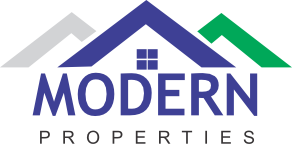Owning a rental property in Zimbabwe can be a valuable source of income, but it also comes with serious legal obligations. As a landlord, you are responsible for ensuring that your property remains safe, habitable, and in good repair throughout the duration of the lease. Failing to meet these duties can expose you to tenant disputes, penalties imposed by local authorities, or even lawsuits. Understanding what the law requires of you is essential to protecting both your investment and the rights of your tenants.
Keeping the property in good repair
One of your core responsibilities is to keep the property in good repair. This obligation covers the structure itself, including the roof, walls, floors, and foundation. If a building has a leaking roof or cracked walls that compromise its safety, you are legally required to remedy these issues in a timely manner. Additionally, you must ensure that all essential services are functional. This includes safe electrical wiring and sockets, reliable plumbing that supplies clean water and effective drainage, and, where applicable, properly installed gas systems. When tenants report problems with any of these systems, you are expected to inspect and repair them within a reasonable timeframe. Neglecting maintenance can escalate the damage and potentially create health hazards.
Meeting health, sanitation, and safety standards
Maintaining appropriate health, sanitation, and safety standards is also a legal requirement. Zimbabwe’s Public Health Act and various municipal by-laws set minimum standards that landlords must meet. You have an obligation to keep the property free from health hazards such as mould, pest infestations, and waste accumulation. Bathrooms and kitchens must be properly functioning, adequately ventilated, and kept clean. Depending on the nature of your property, you may also need to provide basic fire safety measures, such as clear exits, fire extinguishers, or smoke alarms. Ignoring these standards can result in official notices from health inspectors, fines, or orders compelling you to carry out repairs at your own cost.
Respecting tenants’ right to privacy and quiet enjoyment
While you are entitled to access the property to carry out inspections and maintenance, the law also protects tenants’ right to privacy and quiet enjoyment. This means you cannot enter the premises arbitrarily or without giving notice. Except in emergencies, you should provide at least 24 hours’ notice before visiting, and inspections or repairs should take place during reasonable hours of the day. Frequent unannounced visits, or any form of intimidation, can amount to harassment and may entitle tenants to seek legal remedies.
Responding promptly to repairs
Another important aspect of your role as a landlord is responding promptly to repair requests. When a tenant notifies you about damage or defects, you must take reasonable steps to inspect and rectify the problem. The urgency of the response depends on the severity of the issue. For example, dangerous electrical faults or major leaks usually need attention within a day or two, while less critical problems can be scheduled within a week or so. Keeping clear records of all complaints, inspections, and completed repairs is advisable, as these documents can serve as evidence if a dispute arises later.
Complying with the lease agreement
Your lease agreement with tenants also sets out specific obligations regarding maintenance and repairs. Typically, the landlord is responsible for structural repairs and the upkeep of systems like plumbing and electricity, while the tenant is expected to handle everyday care such as cleaning and minor replacements. However, it is important to remember that no lease clause can override statutory duties. You cannot contract out of your legal obligation to provide a habitable property, no matter what your agreement states.
Conducting inspections and documenting condition
Conducting thorough inspections at the beginning and end of each tenancy, as well as periodically during the lease term, is considered best practice. An entry inspection report—ideally supported by photographs—helps establish the condition of the property before the tenant moves in, reducing the risk of disputes over damage when they move out. Periodic inspections can also identify maintenance issues before they become serious problems.
Dealing with tenant damage and non-compliance
If tenants cause damage beyond normal wear and tear, you have the right to require them to repair it or to recover the cost of repairs by deducting from their security deposit. However, you must follow the correct legal process rather than resorting to self-help measures such as locking tenants out, switching off utilities, or evicting them without a court order.
When do I seek legal advice.
Being a responsible landlord is not only about protecting your investment—it is also about fulfilling the legal and ethical duties you owe to your tenants. Staying on top of repairs, respecting your tenants’ rights, and complying with health and safety standards will help you avoid unnecessary conflicts and legal complications.
Before drafting lease agreements, undertaking major repairs, or taking any action that could impact tenants’ rights, it is wise to consult a qualified legal professional. An experienced lawyer can guide you through the specific requirements under Zimbabwean law and help you put proper procedures in place.
Remember, this article is intended as general information and does not constitute legal advice. If you are in doubt about your obligations or how to comply with them, please speak to one of our lawyer who specialises in property law in Zimbabwe. Taking professional advice now can save you time, money, and stress in the future.
